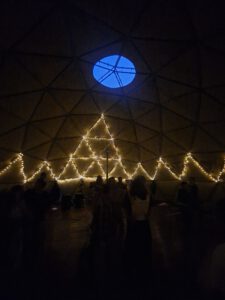Recognise that unlearning is the highest form of learning.
Rumi
A real master teaches you unlearning; it is never learning. You have come to me to unlearn whatsoever you know, never learning. You have come to me learned, so whatsoever you know, please drop it. Become ignorant, become like a child. Only the heart of a child can knock at the doors of the divine, and only the heart of a child is heard. Your prayers cannot be heard; they are cunning. Only a child, only a heart which doesn’t know, can be.
0sho
When I think back on all the crap I learned in high school
It’s a wonder I can think at all.
And though my lack of education hasn’t hurt me none
I can read the writing on the wall…
Paul Simon, Kodachrome 1973
Girls are socialised in ways that are harmful to their sense of self – to reduce themselves, to cater to the egos of men, to think of their bodies as repositories of shame. As adult women, many struggle to overcome, to unlearn, much of that social conditioning.
Chimamanda Ngozi Adichie
Starting in 2013, after working in the corporate environment in so-called „advanced“ countries for the best part of three decades, I was given the opportunity to design and manage an environmental project in Mozambique over two years, under the auspices of the German Development Agency (GIZ).
This was unchartered territory for me in more than the geographical sense. It got off to an auspicious start, on my very first weekend in the capital, Maputo, on a stopover before heading north up along the Indian Ocean coastline to Inhambane, where the project was to be located.
As a habit, I like to wander around and explore new places on foot. It is the best way of getting a feel for the energies of the people, places, fauna, and flora of any place. It is customary for me to head off in a general direction, without navigation devices, having memorised a general map of the territory to be explored. When necessary, I can always find my bearings based on the position of the sun and the time walked in a specific direction since setting off.
On this weekend morning I had earmarked several sights to visit. After a while I began to have doubts about the veracity of the map I had used to plot my intended route. Where the mosque was supposed to be there was the green space of a municipal park. Where the city dump should have been located, there was a market. When I thought I was heading to the most densely populated central quarter of town, I could feel the energy of the city ebb away into the calm of the countryside, beyond the countless improvised homes of the peri-urban belt.
Then, in a moment of clarity, the riddle solved itself. Of course! I had, as always, been working on the premise that the sun was in the south. Not here! Roughly 2,500 km south of the equator, the sun appears to be in the north. This was the first of many lessons in unlearning which came my way during my African adventure.
In post-modern capitalism, we aspire to mastering several key components of any business venture, in order to succeed.
„Hi-tech“, for example, is the Holy Grail. It leads to reduced costs, increased productivity, and high-speed delivery.
On this project, however, I learned that „low-tech“ or even better „no-tech“ was the better option. Look at the fleet of vehicles of any local administration in this part of the world, and you will often find up to 50% of the vehicles defect. Spare parts are difficult to find and, even if available, very expensive. The know-how needed to maintain vehicles often does not exist, so a downward spiral of incremental improvised repairs leads to very high fall-out rates.
We designed our project with the minimum of technology and a maximal degree of manual labour. This is appropriate where labour is plentiful, employment is much sought after, and a high degree of identification between the community and the project is desirable.
„Time-to-market“ is a buzz word in the telecommunications business in which I was involved for decades. In Africa, time moves at a different pace. Things get done when they get done, and that is perfectly fine for all concerned.
„Economies of scale“ are also a keystone of the advanced capitalist approach. The larger a production facility, the better. Overhead costs per unit produced are diluted in proportion to the volume of output.
In projects such as ours, identification of the local community with the vision and goals of the project is paramount. So, we decided on a small scale, to process three tonnes of organic waste from the local market six days per week throughout the entire year. This size is manageable in terms of work needed to be done and transport, both of the organic waste to the plant, and the final product (compost) to the local smallholder farmers. Transport and logistics represent the greatest obstacles on this huge continent where infrastructure is still, in many places, much as it was a century ago.
We decided that in case of increased demand for locally produced compost and if more input material became available, we would set up a similar plant, cookie cutter style, at the opposite end of the municipality rather than expand the existing yard.
„Always look ahead“ is another mantra widely heard in advanced business circles. We decided to look back, when it came to deciding on what packaging to deploy for the finished product. How were products stored and transported in this region before the advent of plastic?
To our surprise, there were many possible options using (almost forgotten) artisan skills and locally grown materials. This provided another potential opportunity for generating new business, by teaching the old skills and realising an alternative to plastic. The organic containers could even be recycled as compost when they had reached end of life.
These and other lessons gave me an appetite for unlearning. They also provided a template for much of the inner work I have been doing in my personal development.
Our families of origin and the cultures in which we grow up teach us many things which are generally regarded as „normal“.
„The Myth of Normal“ by Gabor Maté and his son Daniel, was published in 2022. In this monumental book, they argue that modern Western society is a „toxic culture“ that fosters stress and trauma, leading to an increase in chronic physical and mental illnesses.
At the very beginning, we read that when bacteria are grown in a Petri dish, the substance in which they are grown is referred to as a culture. If the bacterium doesn’t thrive, we do not blame it but rather, we examine what it is in the culture that may be causing the problems.
According to Gabor and Daniel Maté, the high levels of chronic physical and mental illnesses, especially prevalent in richer societies, are not random but are a natural consequence of living in a manner which is disconnected from our authentic selves.
Lack of authentic expression, especially „learned“ in early childhood (as a coping or survival strategy), has a major impact on health. The book provides a compassionate guide to healing by reconnecting with ourselves and each other.
„Normal“ is a myth: The book challenges the idea of what is considered „normal“ in Western countries, in terms of health and lifestyle, pointing out that despite advanced healthcare, chronic diseases and mental illnesses are rampant and, indeed, still on the rise.
The impact of trauma, both „Big T Trauma“ (PTSD) and „Small t Trauma“ (Developmental Trauma or Complex PTSD), is examined Maté emphasises how trauma, both from major events and smaller, developmental hurts (such as sustained frustration of basic childhood needs), is often suppressed and manifests as both physical and mental illness.
Instead of the focus on the individual, as is common practice in western medicine, Maté looks at culture as a cause, arguing that a culture of individualism, materialism, and competition creates chronic stress that burdens the body and immune system, contributing to „dis-ease“.
In this context, light is shone on the so-called mind-body connection, revealing the deep link between emotional pain, suppressed feelings, and physical disorders, suggesting that mind and body are not separate entities.
In terms of healing, the authors propose that true health can be attained by reconnecting with our authentic selves, cultivating compassion, and fostering genuine human connections. This encompasses both individual healing in recognition of the effects of the impact of trauma and stress, encouraging us to become more aware of our own beliefs and the feelings residing behind these beliefs.
Societal healing is also encouraged in terms of building contemporary communities, which can fill the gap left by the atomisation of our societies and the corresponding demise of family, village, and tribal community structures.
Such contemporary communities can and do foster greater authenticity and connection, as can be seen in the worldwide Twelve Step recovery movement in its countless variants, flavours, and sub-cultures. The growth and evolution of this type of 21st century community, both in person and using virtual technology, gives me hope that we can unlearn much of what is proving to be disastrous to us, both as individuals and to our species as a whole.
On a final note, another fresh example of unlearning came my way this morning. Almost overwhelmed by the grandeur and beauty of the sunrise over the Rheinland on my morning walk (transported into the energy of a child, and therefore feeling a high degree of vulnerability), an old childhood belief bubbled up to the surface: „I am a burden to my family“.
The correction was not long in coming: „I have so much to offer my family!“ Whereupon I sent that beautiful photograph above this text to my loved ones, with a loving greeting for this new day.






